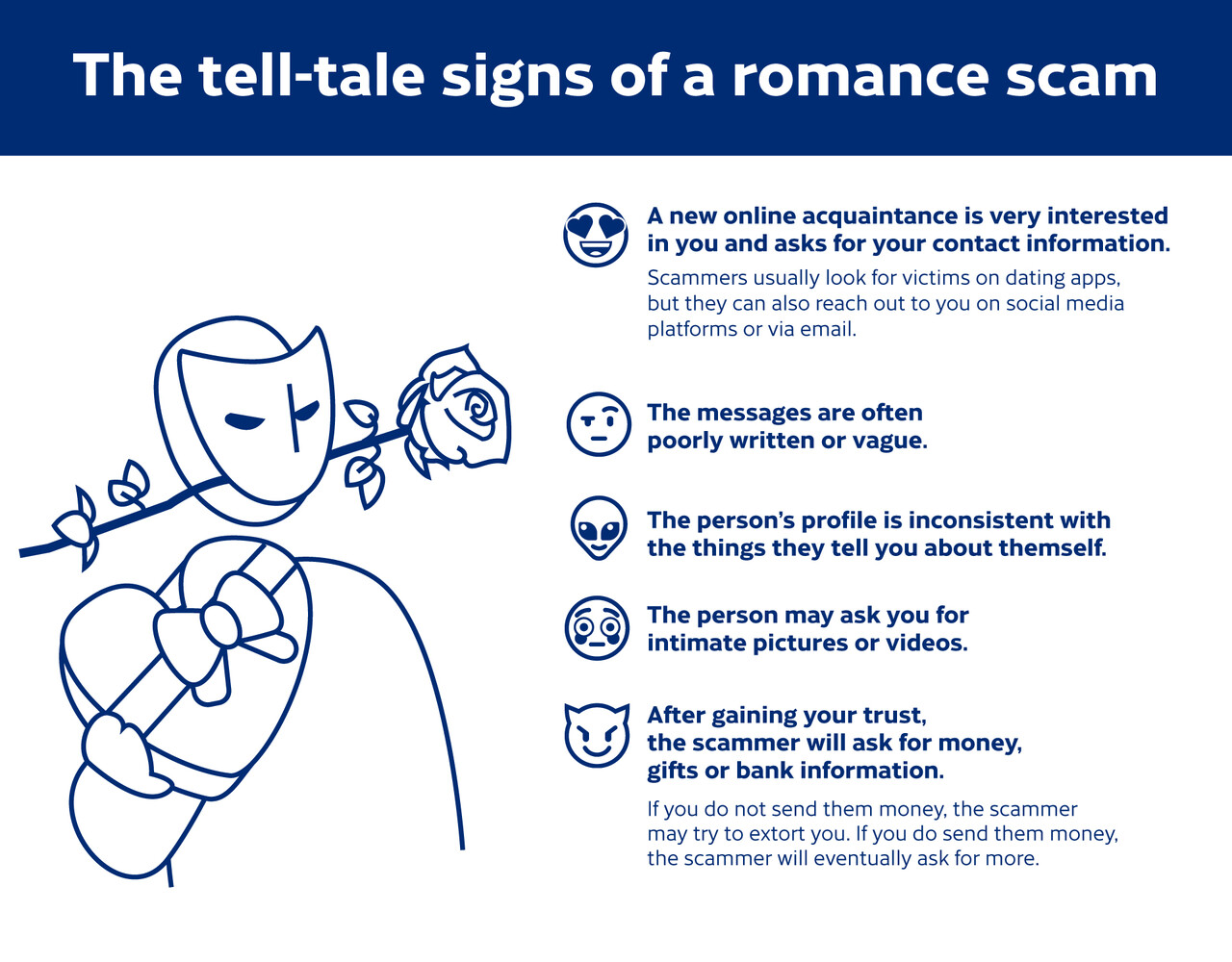Romance scams are professional crimes
Romance scams are a shameless form of crime that anyone can fall victim to. A romance scam typically starts with the victim being approached on a social media platform. The scammers will pose as a made-up person who seems appealing to the victim in every way. After establishing contact, the criminals will often devote a great deal of time to establishing a trusting relationship between the victim and the fake persona by engaging in discussion about shared interests or lavishing the victim with praise, for example. Eventually, the criminals will ask the victim for money, claiming that they need it for flight tickets so that they can come see the victim in person, for example. During 2022, people in Finland lost a total of EUR 9 million to romance scams and document fraud.
Although it may appear to the victim that they are always talking to the same person, the persona made up for the scam is often played by several different people. The people behind the fake personas are often persons who have been coerced into participating in the scam, such as victims of human trafficking or people in a vulnerable position tricked into “customer service jobs.” The people carrying out individual scams are controlled by professional and organised criminal gangs that carry out large-scale scam campaigns. The victims of romance scams may also be exploited for money laundering: As part of establishing a trusting relationship, the scammers may send the victim considerable sums of money to send on to someone else.
You should always tell someone close to you about any new online acquaintances so that you can think about the situation together. Criminals try to make their fake personas as irresistible as possible, and infatuated victims can easily end up ignoring warning signs.


